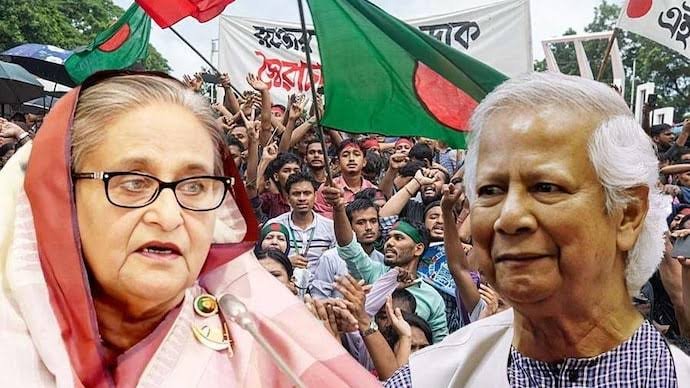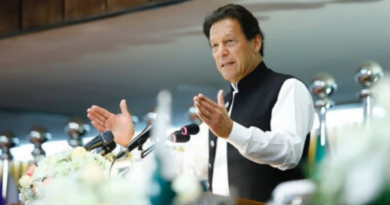Bangladesh Charges Former PM Sheikh Hasina with Crimes Against Humanity Over 2024 Uprising
Dhaka, June 1, 2025*
In a landmark development, Bangladesh’s International Crimes Tribunal (ICT) has formally charged former Prime Minister Sheikh Hasina and two senior officials with crimes against humanity. The charges are linked to their alleged involvement in violent crackdowns on student-led protests during the 2024 uprising, a turbulent period that shook the nation and drew international condemnation. This move marks a significant step in Bangladesh’s efforts to address human rights abuses and hold powerful figures accountable.
Background of the 2024 Uprising
The 2024 uprising began as a student-led movement demanding democratic reforms, government accountability, and an end to systemic corruption. Initially peaceful, the protests escalated as authorities responded with force, leading to widespread violence. The demonstrations, which peaked in mid-2024, challenged the long-standing rule of Sheikh Hasina, who had served as prime minister for 15 years under the Awami League government. The crackdown that followed drew global scrutiny, with reports of brutal tactics used to suppress dissent.
The ICT, a special court established to prosecute war crimes and crimes against humanity, has accused Sheikh Hasina and two senior officials—whose identities have not yet been fully disclosed—of orchestrating a “planned systematic attack” against civilians. According to the tribunal, the crackdown targeted peaceful demonstrators, resulting in severe human rights violations. The charges are supported by evidence gathered from witness testimonies, video footage, and reports by local and international organizations.
A United Nations fact-finding mission, conducted earlier in 2025, detailed the scale of the abuses, estimating that over 1,400 people were killed during the unrest. The mission’s findings highlighted the following violations:
Extrajudicial Killings: Security forces allegedly shot and killed unarmed protesters, with reports of targeted assassinations.
Arbitrary Arrests: Thousands of individuals, including students, activists, and opposition members, were detained without due process.
Torture: Detainees faced physical and psychological abuse in custody, with documented cases of beatings and inhumane treatment.
Enforced Disappearances: Numerous individuals vanished after being taken by security forces, leaving families without answers.
The UN report concluded that these actions meet the legal threshold for crimes against humanity, defined under international law as widespread or systematic attacks directed against a civilian population.
Sheikh Hasina’s Exile and Extradition Efforts
Sheikh Hasina, 77, fled Bangladesh in August 2024 as protests intensified and her government lost control. She is believed to be in exile in India, though her exact location remains unconfirmed. Bangladesh’s interim government, led by Nobel Peace Prize laureate Muhammad Yunus, has formally requested India’s cooperation in extraditing Hasina to face trial. As of June 1, 2025, India has not issued an official response to the extradition request, raising questions about diplomatic relations between the two nations.
The interim government, established in the wake of Hasina’s departure, has prioritized justice and reform, with the ICT’s charges seen as a cornerstone of this effort. Yunus, a renowned economist and microfinance pioneer, has vowed to restore stability and ensure accountability for past abuses.
Global Reaction and Human Rights Advocacy
The charges against Hasina have reverberated across the international community. Human rights organizations have welcomed the ICT’s decision as a crucial step toward justice. “This trial sends a strong message that no one is above the law,” said a spokesperson for Amnesty International. “It’s a chance for Bangladesh to break the cycle of impunity and rebuild trust in its institutions.”
Other groups, including Human Rights Watch and the International Commission of Jurists, have called for a fair and transparent trial, urging the ICT to adhere to international standards. The United Nations has also pledged to monitor the proceedings closely, emphasizing the need for an impartial process to address the gravity of the allegations.
However, some critics, including supporters of Hasina and the Awami League, have questioned the legitimacy of the charges, alleging political motivations behind the trial. They argue that the interim government is targeting Hasina to weaken her political legacy and sideline her party.
The Road Ahead: Trial and Reconciliation
The ICT is expected to begin formal proceedings in the coming months, though no exact date has been set as of June 1, 2025. The trial will likely involve extensive evidence, including survivor testimonies, forensic reports, and documentation from human rights groups. Legal experts anticipate a complex and lengthy process, given the high-profile nature of the case and the international attention it has garnered.
Bangladesh now faces the dual challenge of pursuing justice while fostering national reconciliation. The 2024 uprising exposed deep divisions within the country, and the trial of Sheikh Hasina could either bridge or widen these gaps. The interim government has promised to prioritize healing, with initiatives aimed at supporting victims, reforming security forces, and strengthening democratic institutions.
Implications for Bangladesh and Beyond
The charges against Sheikh Hasina mark a historic moment for Bangladesh, a nation with a tumultuous political history marked by coups, assassinations, and periods of authoritarian rule. A successful trial could set a precedent for accountability in South Asia, where leaders have often evaded punishment for human rights abuses.
Internationally, the case underscores the growing demand for justice in cases of state-sponsored violence. The outcome of the extradition request and the trial itself will likely influence Bangladesh’s relations with India and other global powers, as well as its standing in the international community.
As Bangladesh navigates this pivotal chapter, the world watches closely. The pursuit of justice for the 2024 uprising could redefine the nation’s future, offering hope for accountability, reform, and a stronger democracy.




